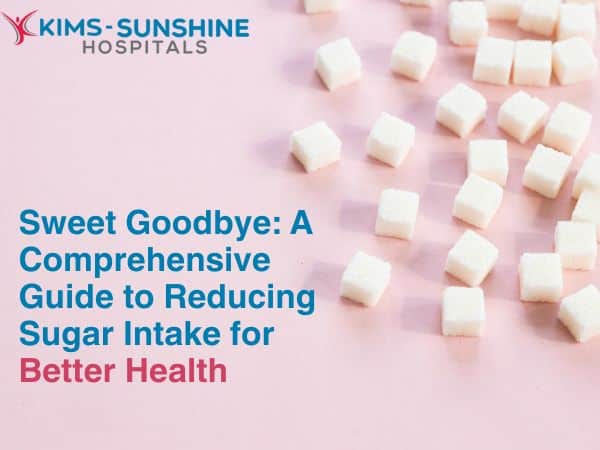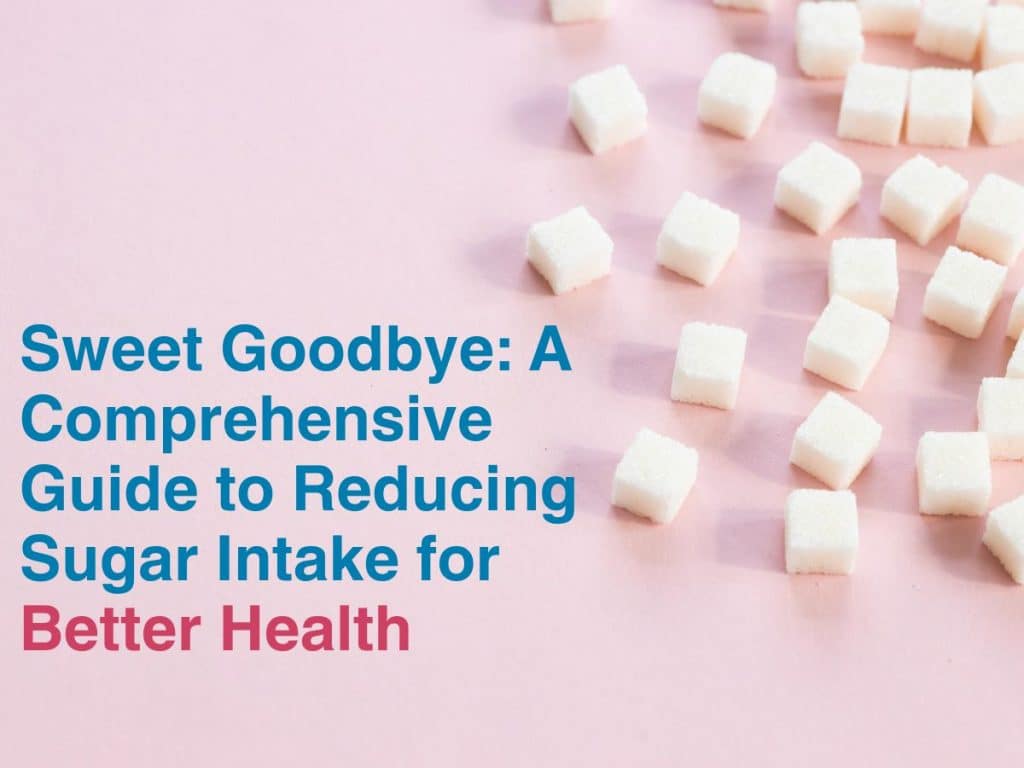
Sweet Goodbye: A Comprehensive Guide to Reducing Sugar Intake for Better Health

In the last couple of years, the harmful effects of sugar intake have come under the spotlight. With new research revealing the links between high sugar consumption and several health issues, many actively seek to reduce or completely
cut their sugar consumption. This article explores the latest findings on sugar reduction, its health benefits, and practical strategies to reduce sugar in your diet.
A Few Stats to Consider:
Recent data paints a concerning picture of sugar consumption:
- The American Heart Association recommends no more than 6 teaspoons (25 grams) of added sugar per day for women and 9 teaspoons (38 grams) for men.
- The World Health Organization (WHO) recommends limiting free sugar intake to no more than 10% of total daily caloric intake. However, in India, the scenario is quite concerning.
- Studies suggest Indians consume a significant amount of added sugar, with estimates ranging from 10% to 15% of daily calories. This translates to roughly 30-45 grams of added sugar per day, exceeding WHO recommendations.
-
India has emerged as the world’s largest consumer of sugar, with a total consumption of 30 million metric tons in 2023 (Statista sugar consumption India). This trend is linked to a rise in chronic diseases like obesity, type 2
diabetes, and heart disease.
Health Implications of High Sugar Intake
Recent research has strengthened the connection between excessive sugar consumption and various health issues:
Obesity and Weight Gain: A 2019 meta-analysis in Advances in Nutrition confirmed a strong association between sugar-sweetened beverage consumption and weight gain in both children and adults.
Type 2 Diabetes: A 2019 study in Diabetes Care found that replacing sugar-sweetened beverages with water or unsweetened tea/coffee was associated with a lower risk of type 2 diabetes.
Heart Disease: Research published in JAMA Internal Medicine in 2014 showed that individuals who consumed 25% or more of their daily calories from added sugar had a significantly higher risk of cardiovascular mortality.
Cognitive Function: A 2019 study in Alzheimer’s & Dementia linked high sugar intake to cognitive decline and dementia risk.
Strategies to Reduce Sugar Intake
Healthy Alternatives:
– Use natural sweeteners like stevia, monk fruit extract, or erythritol. – Incorporate sweet fruits like berries or bananas into recipes. – Try spices like cinnamon or vanilla to add sweetness without sugar.
Label Reading:
– Be aware of the many names for added sugars, including high fructose corn syrup, dextrose, and maltose. – The FDA now requires added sugars to be listed separately on nutrition labels, making them easier to identify.
Meal Planning:
– Plan meals around whole, unprocessed foods. – Prepare meals at home to control sugar content. – Batch cook low-sugar meals for convenience.
Beverage Choices:
– Replace sugary drinks with water, unsweetened tea, or sparkling water with fruit. – A 2019 study in the British Medical Journal found that replacing sugar-sweetened beverages with artificially sweetened ones or water was associated
with lower type 2 diabetes risk.
Managing Cravings:
– Eat protein-rich snacks to reduce sugar cravings. – Ensure adequate sleep, as sleep deprivation can increase sugar cravings. – Stay hydrated, as thirst can sometimes be mistaken for hunger.
Sugar and Weight Loss:
– A 2020 study in the European Journal of Nutrition found that reducing added sugar intake led to significant weight loss and improved body composition.
Conclusion
Reducing sugar intake is a powerful step towards improved health. By implementing these strategies and staying informed about hidden sugars, you can significantly decrease your sugar consumption. Remember, small, consistent changes can
lead to substantial health benefits over time. As always, consult with a healthcare professional or registered dietitian for personalized advice on reducing sugar in your diet.
Frequently Asked Questions

Dr. Ramya C. Valiveru
MBBS, MS (General Surgery, JIPMER) M.Ch (Endocrine & Breast Surgery – Gold Medalist, SGPGI)
Consultant Breast Oncologist & Endocrine Surgeon






